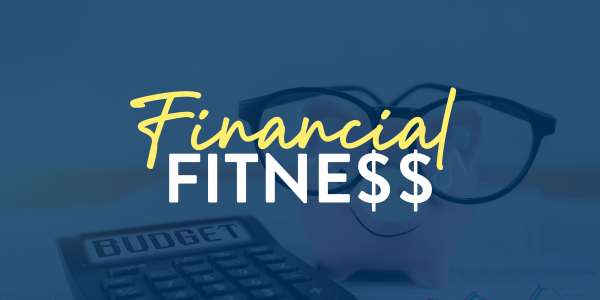
The New Year is full of new goals. For many, planning to buy a house is one of them—and who could blame them? With interest rates teetering at historic lows, the door for many borrowers has been opened, and these rates have provided some borrowers the opportunity to increase their price range.
If you’re ready to get the process started to ensure you’ve got all your ducks in a row when it comes time to pull the trigger and submit an offer on a house, APM is here to help with planning tips for buying a home in the new year.
Become Credit Savvy
There are few times when your credit score is more important than when you’re planning to buy a house. This is a big purchase, after all. Do yourself a favor and pull your credit report early. This will give you plenty of time to address any errors or discrepancies you find and perhaps raise your score if it’s a little lower than you’d like.
You can request your credit report for free through any of three credit bureaus, including Experian, TransUnion and Equifax by going to www.annualcreditreport.com. There are many ways you can improve your credit, and paying your bills on time and ensuring that you never utilize more than 30% of your available credit at any given time are two of the biggest.
Understand Your Financial Picture
Though the trees are important, when you’re planning to buy a house, you’ll want to take a good, solid look at your financial forest. Your credit score is part of this, but so is your income, outstanding debts, savings, investment accounts, and your spending habits. Click here to download the APM budgeting guide to help walk you through this process.
You’ll want to break down all these “trees” even further. Start by making a list of your annual earnings. This includes both wages and self-employment income, as well as any bonuses, commissions, or money made from side hustles. You also want to include any child support, alimony, and government or public assistance you receive.
Moving on to debts, this column will include your current rent or mortgage payment, as well as bills like utilities and insurance. Then you have to account for your student loans, auto loans, and credit card payments. As with earnings, you want to include child support or alimony if this is applicable to you. Next up is taking stock of your savings accounts, including retirement accounts. Any investment accounts should be noted here as well.
The final consideration in your big-picture financials is your spending habits. Make a list of what you spend by going through your debit and credit card statements, in addition to cash receipts. This will give you a sense of where you can trim costs and save money if you’re planning to buy a house anytime soon.
Take a look at all these figures, then determine how a mortgage payment and other considerations—like private mortgage insurance (if you’re putting less than 20% down), property taxes, HOA fees, and insurance —may impact your budget. This will give you a realistic assessment of what kind of payment you can afford when you’re planning to buy a house.
Get Pre-Approved
Understanding how much you’d like to spend on a house is great, but making this number official is even better! That’s why it’s so strategic to get pre-approved. This shows a seller that you’re serious when you say you’re planning to buy a house. Working with an APM Loan Advisor early on can put you ahead of the game as it gives you a clear picture of your housing budget. Click here to locate an APM Loan Advisor in your area.
The pre-approval process is super simple when you have an APM mortgage professional to guide you through it. You’ll talk about your debt-to-income (DTI) ratio, which will help determine how much mortgage debt you can take on, factoring in your other financial obligations. The pre-approval process will also consider the funds you have on hand, including your bank, investment, and retirement accounts, in addition to any monetary gifts or down payment assistance you’ll utilize when you’re planning to buy a house.
Naturally, you know credit will be part of this equation. The pre-approval process will consider your FICO score, which weighs how much credit you have, how much credit you’ve used, your payment history, and any accounts that have been closed or opened recently.
The value of a pre-approval means your situation has been reviewed by a licensed professional, and a green light to proceed has been given. Taking the time to complete this process upfront will provide you peace of mind and confidence while shopping for that perfect home for you.
Understand Your Local Housing Market
At this point, you’re not just planning to buy a house. You’re taking actionable steps to ensure your homeownership goal soon becomes a reality. Go you! Now that all the legwork is in place, you want to turn your attention to your local housing market. Buying a home is a big investment that you want to make sure you understand at least the basic fundamentals of before jumping in.
A real estate professional can give you advice on neighborhoods, new homes hitting the market, and strategies for navigating homes for sale. Speaking of this, one thing you should know about today’s housing market is that inventory is low in many markets across the country. This is because many people are looking to take advantage of low interest rates, and there is not enough housing inventory to accommodate the demand.
All of this can equate to more competition for homes. This is where pre-approval can set your bid apart from the others. Another way to stand out if you’re planning to buy a house soon is to get your down payment funds and closing cost funds in place before you begin the house-hunting process. Once you start, you have no idea if you’ll find your dream home the next month or the next day, so you want to be ready to pounce whenever that time comes.
For more information on buying your first home, get your free copy of our guide here.
There aren’t many moments in life that are more exciting than when you’re planning to buy a house. The process is full of promise and possibilities but can also be overwhelming if you’re not prepared. The good news is it doesn’t have to be overwhelming as long as you take these proactive steps. A little work upfront can yield tons of savings in the long-run.








